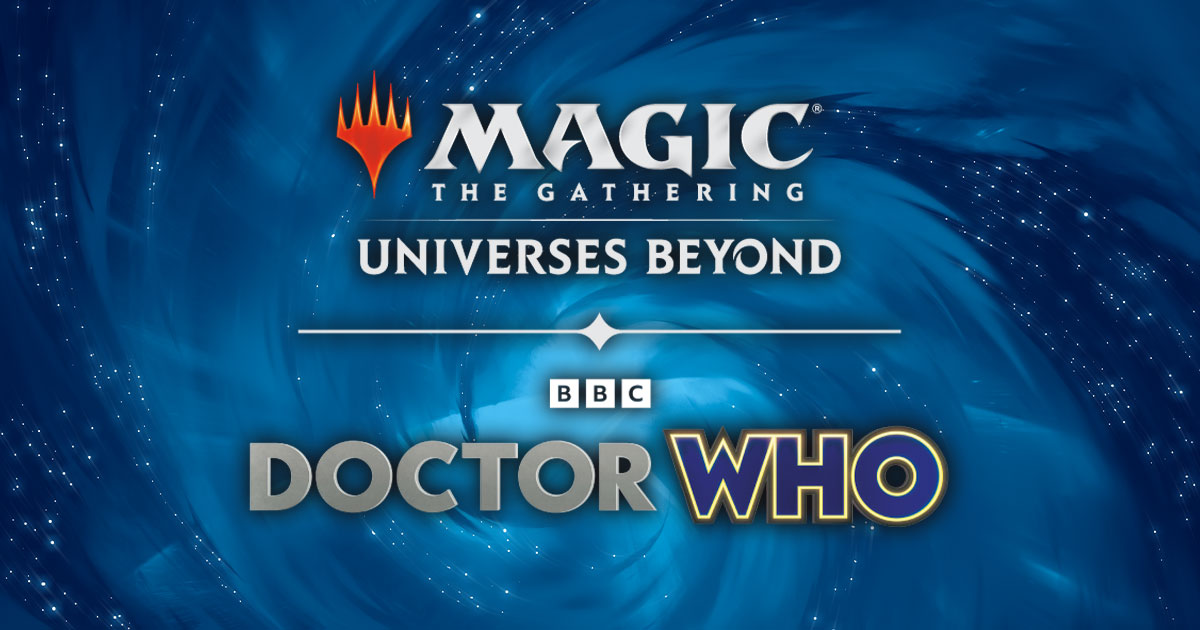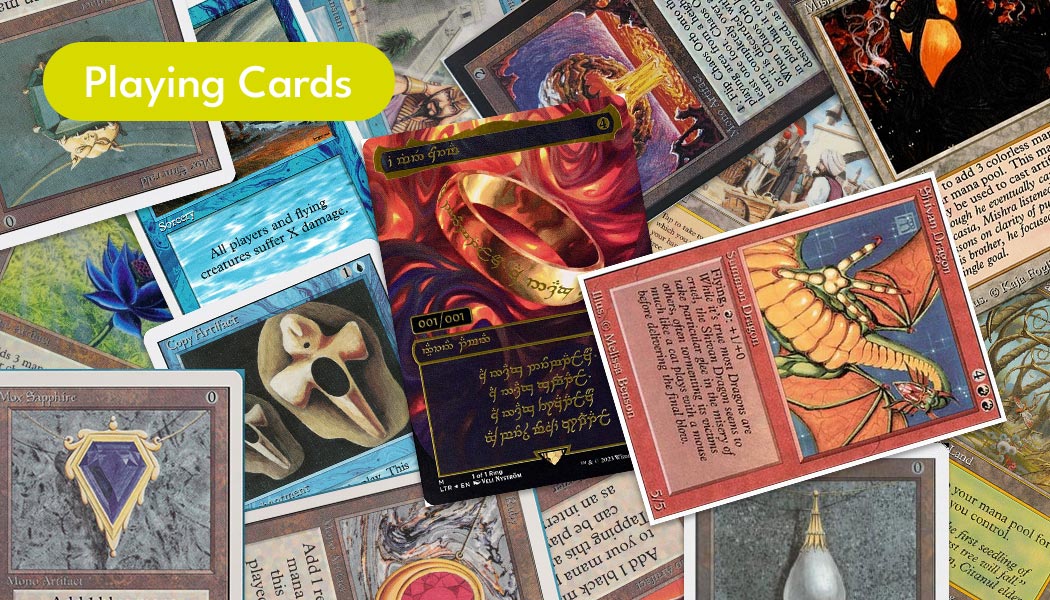Great Advice For Deciding On MTG Price
Great Advice For Deciding On MTG Price
Blog Article
What Are Magic: The Gathering Trading Card?
Magic: The Gathering - MTG is a collectible game of cards invented by Richard Garfield. The game was developed by Wizards of the Coast. The game was first released in 1993. Since then, it has become a worldwide phenomenon.
Gameplay The game involves players take on the role as powerful wizards called "planeswalkers" using decks of cards that depict magical creatures, spells, artifacts, and more, in order to beat their opponents.
Cards- There are many types of cards, including creatures, spells, artifacts land, enchantments and lands and planeswalkers, each with distinct properties and effects.
Deck building- The player build their decks with 60 cards minimum. They can also include more than one mana color which is the game's most powerful resource.
Game Objectives: The objective is to decrease your opponent's life count from 20 down to 0. This can be achieved by casting spells, or using cards in a strategic way.
Trading Cards
Collectibility – MTG Cards are collectible. They are available in a variety of designs, rarities, and abilities. These cards are very sought-after by players and collectors.
Sets and Expansions - The game introduces expansions and sets regularly. These introduce new mechanics, cards and themes.
Value and market- Certain cards can be very valuable, especially if they are rare or have a strong value. This is because people will buy, trade, and sell them on secondary market.
Playstyles and Formats
Standard- Has the most recent cards and uses a rotating pool.
Modern, Legacy, Vintage - Cards from older sets can be adapted to different strategies and styles.
Limited Formats - Draft or Sealed formats, where players make decks using a pool of limited cards. This creates a sense of strategy and randomness.
Competitions and community
Local and global community - Players meet at game stores, conventions, and tournaments to play, socialize, and trade.
Competitive Play - Organized games include tournaments (including championships) professional competitions and other organized games with huge prize pots.
Cultural Impact
MTG is a well-known game that has incited other media and games. This includes comics, novels and video games.
Magic: The Gathering offers a variety of gameplay options for all players. It is a strategic and complex card game which blends elements such as luck, skill and strategy when building decks. Have a look at the best mtg sets for more examples including mtg card prices, magic card store, collection card, mtg the gathering, magic the gathering trading cards value, magic videogame, sets in mtg, buy magic cards, magic the gathering trading cards value, make mtg cards and more.
What Are The Mtg Magic The Gathering Cards Perform? Pros And Cons?
Magic: The Gathering's enchantment cards are a constant source of magic that may have a range of effects on the game. The cards are not reversible and can provide a continuous effect or ability. The pros and cons of each.
Persistent Effects- Enchantments remain in play until they are removed, offering ongoing benefits or altering the game state continually. They may affect the game while they are active.
Multiple Results- Enchantments offer an array of effects. They can be used to boost creatures or controlling actions of adversaries. They can be used for a variety of reasons, allowing them to be used in many different strategies.
Synergies: The Enchantments have the ability to interact with other types of cards, such as creatures, spells, and artifacts. They can be used to create powerful interactions that enhance a player’s overall strategy.
Certain Enchantments are difficult to remove. Certain enchantments can provide players with an advantage by being able to protect or gain abilities.
Cons-
Vulnerability to Removal- Enchantments as with other permanents that are not creature-based are susceptible to being targeted and eliminated by certain spells or effects targeting the enchantments. This makes them vulnerable to removal strategies.
Resource Cost- Certain powerful spells have high mana cost which makes them difficult to cast during the initial game. This could cause an interruption in a player's plans or leave them open to attack.
Dependence on Other Cards Certain enchantments require the support of other cards in order to work and their effectiveness could be limited if they don't have the necessary support or setup.
Situational Effects- Certain spells may have specific or specific uses, which makes them less effective, or unusable in certain matchups or game states.
Enchantment cards can be utilized to produce lasting and powerful effects. Due to their long-term effects they can be a crucial element of a variety of Magic: The Gathering deck strategies. Their vulnerability to removal should also be considered as should their potential dependence on other deck cards. Read the top rated magic cards where to buy for blog info including magic cards value, magic cards, magic gathering set, magic market, magic videogame, magic the gathering cards value, magic cards new set, magic tcg decks, magic tcg decks, magic rarities and more.
What's The Goal Of Magic: The Gathering Land Card? What Are The Advantages And Disadvantages Of Magic The Gathering's Land Cards?
Magic The Gathering's land cards are essential for the game. They provide the mana needed to deploy cards and cast spells. Here are their pros and cons-Pros-
Mana Generation- Land Cards are the main source of mana. Lands are the primary source of mana, which is used to cast spells, summon creatures, and activate capabilities of other cards.
StabilityWhen a land card is played, it remains on the board and provide mana for each turn.
Different types lands produce mana of various shades. These help players gain access to certain colors for casting spells corresponding to the colors of their deck.
Certain cards have additional capabilities. Certain land cards' abilities extend beyond the ability to generate Mana. They can draw cards, extend longevity, or even provide you with additional effects when they are tapped.
Cons-
Limited Functionality - Unlike the other types of cards, the land cards primarily function to produce Mana. They do not have any direct effect on the game beyond mana production.
Vulnerability To DestructionVulnerability to Destruction Lands could be susceptible to spells that damage their properties. This can make players unable to use mana resources and could affect their spell casting abilities.
Limitation on Use Per Turn. Players are generally restricted to only playing one landcard every turn. This limits the amount of Mana they can create in one round.
Opening Hand BalanceA few too many lands or lots of lands too early in the game can adversely affect a players ability to advance his plan of attack or cast spells.
The Land Cards form the basis of every Magic: The Gathering game They provide the necessary mana for other spells to cast as well as the ability to play the game. Their continual presence and capacity to generate mana are crucial for executing strategies, and also for using powerful cards. In the process of deck building and strategy, it's important to consider their role in the game in addition to mana generation. View the top magic card prices for site advice including mtg cards, magic the gathering cards prices, wildcard card, magic rarities, buy mtg, mtg cards, sell mtg cards, magic card sets, magic cards new set, best magic of the gathering cards and more. 